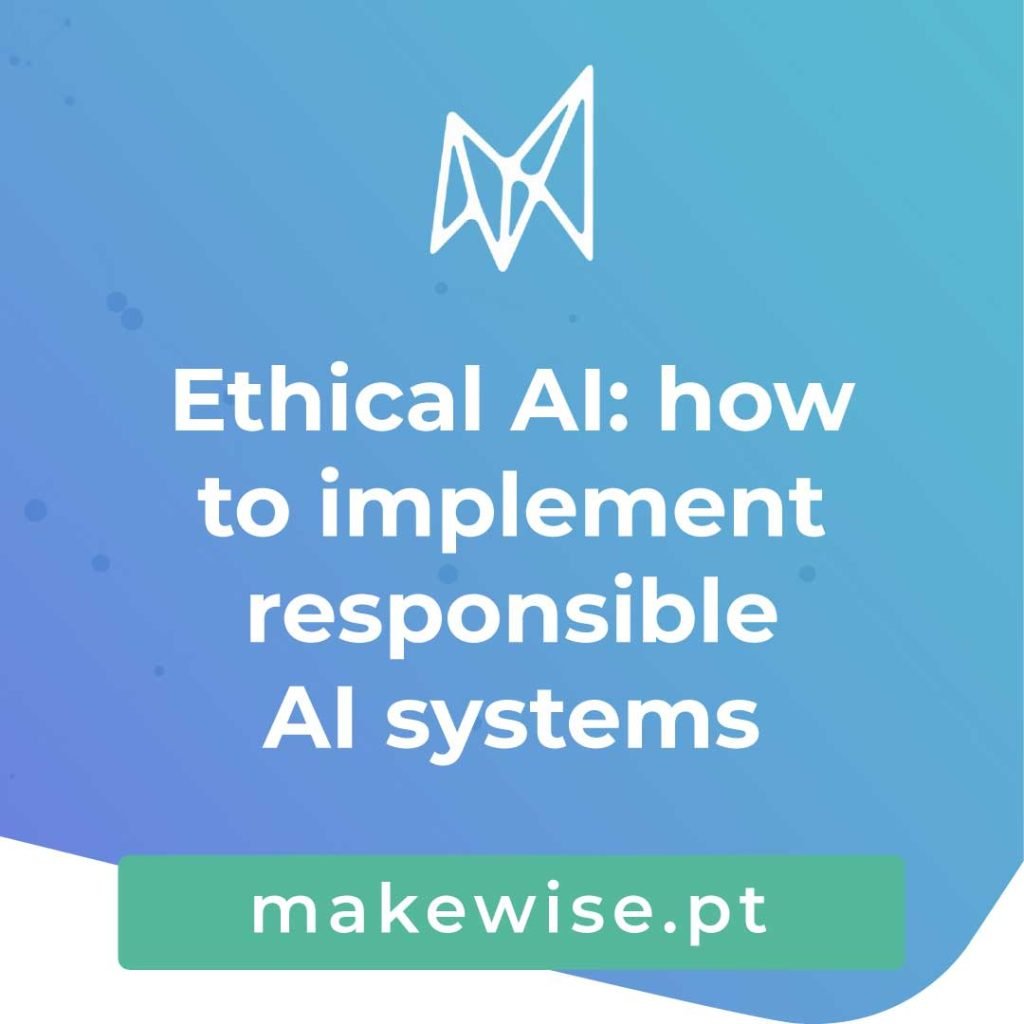As artificial intelligence (AI) becomes more deeply embedded in everyday life, the importance of developing and using it responsibly has never been greater. From healthcare to logistics, AI is helping businesses innovate and optimize processes — but it also raises critical questions around fairness, transparency, privacy, and accountability. Responsible AI is about more than just compliance. It is a commitment to building technology that respects human values and contributes positively to society. In this article, we explore what responsible AI means in practice, how organizations can implement it effectively, and how these principles are reflected in advanced AI applications.
What is responsible AI?






At its core, responsible AI refers to the design, development, and deployment of AI systems in ways that are ethical, transparent, and aligned with human rights and in accordance with the recommendations of the EU AI Act, which establishes legislation for Artificial Intelligence. It involves ensuring that AI technologies promote fairness, avoid harm, respect privacy, and remain accountable to the people and communities they impact.
Responsible AI typically rests on several key principles:
- Fairness — AI systems should be free from bias and ensure equitable treatment across diverse groups.
- Transparency — Decisions made by AI should be explainable and understandable to users.
- Privacy — Personal data must be handled with the highest standards of protection and security.
- Accountability — Organizations must take responsibility for their AI systems and their outcomes.
- Human-centered design — AI should augment and support human decision-making, not replace it.
By applying these principles, organizations can help ensure that AI remains a force for good — fostering trust and delivering benefits across sectors.
How to implement responsible AI systems
Building truly responsible AI requires moving beyond principles into practical action. There are several key steps organizations can take:
- Define clear ethical guidelines: formalizing AI ethics policies provides a shared vision for teams working on AI projects. These should align with organizational values and address fairness, transparency, privacy, and accountability.
- Establish strong governance: governance frameworks ensure that responsible AI practices are integrated at every stage of development. This might include ethics review boards, clear escalation paths, and mechanisms for monitoring and accountability.
- Address bias and ensure fairness: diverse, representative data and robust testing are essential to mitigating bias in AI models. Techniques such as counterfactual analysis and fairness audits help identify and correct unintended biases.
- Promote transparency and explainability: AI systems should be interpretable — not “black boxes.” Users should be able to understand how decisions are made, particularly in applications with significant real-world impacts.
- Respect privacy and ensure data protection: AI development must fully respect privacy regulations such as GDPR. Data governance policies should cover data collection, processing, storage, and retention — with privacy built in from the outset.
- Foster an ethical culture: ultimately, responsible AI depends on people, not just processes. Organizations should promote a culture of ethical awareness through training, communication, and leadership commitment.
Implementing responsible AI is an ongoing process — one that evolves alongside advances in technology, regulation, and societal expectations.
CHECKPOINT.VISION: responsible AI in action
CHECKPOINT.VISION is a powerful example of responsible AI in practice. Designed to provide advanced vehicle and goods tracking for logistics and transport operations, it embodies the ethical principles that guide all MakeWise solutions.
With CHECKPOINT.VISION:
- Transparency is built in — operators can clearly understand how vehicle identification and tracking decisions are made.
- Fairness and accuracy are continuously validated — to ensure unbiased performance across diverse transport scenarios.
- Data privacy is fully protected — with secure, GDPR-compliant data processing and clear user consent mechanisms.
- Human oversight is always present — CHECKPOINT.VISION supports, not replaces, human decision-makers.
- Continuous improvement is embedded — we regularly update and audit the system to ensure it meets evolving ethical and regulatory standards.
As AI technologies continue to advance, the responsibility to develop and deploy them ethically grows in parallel. Implementing responsible AI is not only about managing risk — it is about building trust, ensuring accountability, and delivering value in a way that aligns with societal values and expectations.
Whether in logistics, healthcare, retail, or any other sector, responsible AI is becoming an essential foundation for sustainable innovation. By embracing these principles — and continuously refining them in practice — organizations can help shape an AI future that is not only powerful, but also ethical, transparent, and human-centered.

